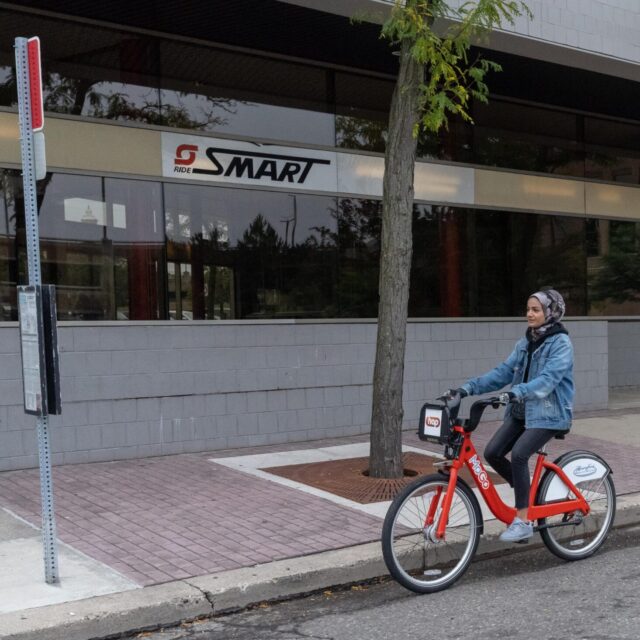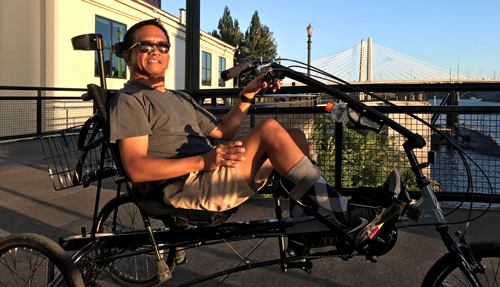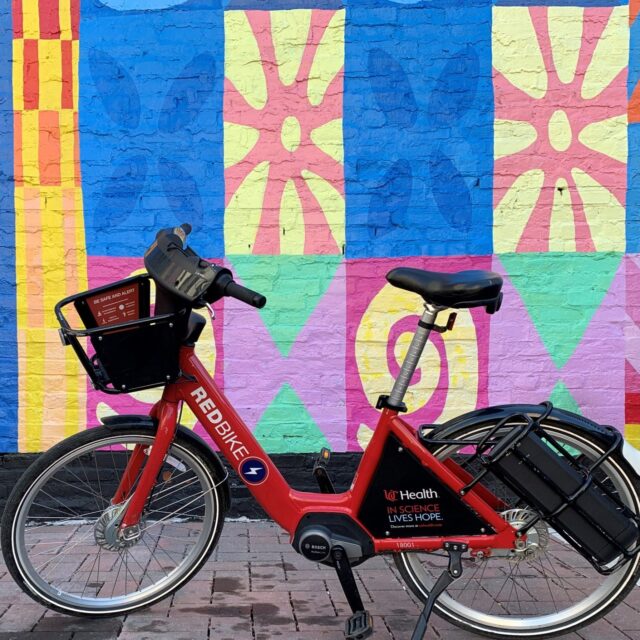Prescribe-a-Bike is Coming to Portland
by Kiran Herbert, Communications Manager
March 23, 2021
This is the third article in a series profiling our five Living Labs, all of which are focused on bettering bike share in historically marginalized communities.
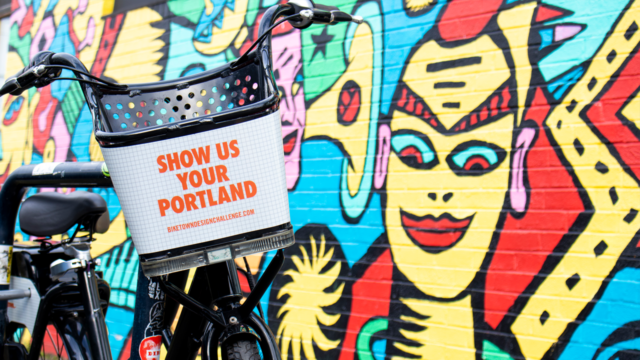
Despite its reputation as a liberal utopia, Portland, Oregon, has a particularly ugly history of white supremacy, defined by the state’s 1844 Black Exclusion Bill and in the next century, environmental racism, red-lining and, most recently, displacement and gentrification. Due to these policies, the majority of high-poverty areas in Multnomah County, where Portland is located, are communities of color, which also suffer from higher rates of chronic diseases. Today, Portland is more than 77 percent white, yet like the rest of the country, its Black residents experience elevated rates of obesity, heart disease, diabetes and cancer.
For this Living Lab, BIKETOWN, Portland’s bike share system, is partnering with the Multnomah County Health Department, Racial and Ethnic Approaches to Community Health (REACH) Program to pilot Portland’s first Prescribe-a-Bike program. Some of the leading causes of death for Black Portlanders—including heart disease, diabetes and stroke—can all be lowered with increased physical activity. By prescribing bikes to folks already visiting two REACH clinics within BIKETOWN’s service area, the program will combine public health, transportation justice and racial equity.
In recent years, the city, including the Portland Bureau of Transportation (PBOT), has been acknowledging the ways in which government action has perpetuated deep systemic inequity, and this project is part of a larger effort to do better by all of its residents through bike share. Lyft manages BIKETOWN on behalf of PBOT, which serves as a collaborative partner and oversees day-to-day community outreach and engagement. As BIKETOWN continues to expand its service area and grow, it’s focusing on areas of Portland with historic disinvestment without prior access. By partnering with REACH, it also hopes to simultaneously make a targeted improvement in people’s overall health.
“It’s physical activity as medicine, with bike share as the prescription,” says Roshin Kurian, transportation demand management specialist at PBOT. “That medicine has the potential to provide a more holistic approach, taking into account mental and social factors, rather than just the symptoms of a disease.”
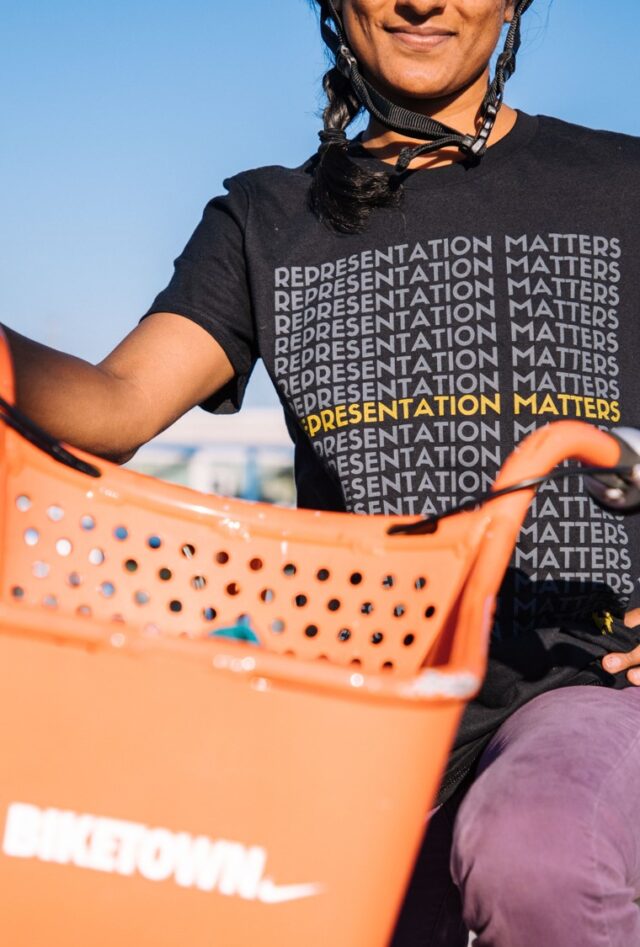 Both partner clinics—La Clínica de Buena Salud and the Northeast Health Center—are located in Northeast Portland and are part of Multnomah County’s Federally Qualified Health Center (FQHC) network. The clinics primarily serve people who are uninsured or under-insured, all of whom automatically qualify for BIKETOWN’s $5 per month equity program, BIKETOWN for All, by nature of receiving government assistance. For about 50 patients with qualifying conditions, medical providers (including community health workers) will write bike share prescriptions for 60 minutes of riding, five days a week.
Both partner clinics—La Clínica de Buena Salud and the Northeast Health Center—are located in Northeast Portland and are part of Multnomah County’s Federally Qualified Health Center (FQHC) network. The clinics primarily serve people who are uninsured or under-insured, all of whom automatically qualify for BIKETOWN’s $5 per month equity program, BIKETOWN for All, by nature of receiving government assistance. For about 50 patients with qualifying conditions, medical providers (including community health workers) will write bike share prescriptions for 60 minutes of riding, five days a week.
“This partnership is huge for qualifying patients of our clinic because the cost of buying a helmet and bike is more than they may be able to afford,” says Amaury Sarmiento, senior regional manager of La Clinica de Buena Salud. In addition to bike share memberships and free helmets, participants will receive e-bike safety education, technical assistance and opportunities to engage in healthy behavior workshops throughout the year.
“The end goal is to showcase the basics of how a collaborative program like this works in a small healthcare setting,” says Kurian. “We would like to eventually see this rolled out in different settings across Portland, such as schools, larger healthcare facilities or even with insurance partners.”
Prescribe-a-bike programs aren’t new—Boston and Brooklyn have their own, and the U.K. announced a nationwide initiative in July—but they are rare, and haven’t traditionally involved electric pedal-assist bikes, which make up the entirety of BIKETOWN’s fleet. At the end of two years, PBOT will rely on participation data, metrics on outreach data, use tracking, in-person follow-ups with patients and REACH’s own established evaluation methods to determine the program’s success.
Although the details are still being worked out, the pilot hopes to gather a mix of valuable qualitative and quantitative data, as well as a key focus group for BIKETOWN as it continues to grow. Currently, the program’s neighborhoods are on the edge of BIKETOWN’s service area, but that may well change as the system expands and more bikes are added. The hope is that Prescribe-a-Bike participants will be part of the conversation around expansion, letting BIKETOWN know where stations would be most useful and where they think the service area should end.
Another qualitative data collection method the pilot hopes to use is Photovoice, which will allow patients to document their personal experiences biking. The method collects user-generated photos in response to general prompts such as “Where would you like to see a BIKETOWN station?” or “Where is somewhere you would like to ride to but don’t because you don’t feel safe?” Not only does this technique allow for people to showcase their neighborhood as they see it, but it’s also empowering, a way of using art to create social change.
“Sometimes charts and graphs aren’t enough,” says Kurian, adding that photo documentation keeps people in positions of power from speaking for historically marginalized communities that aren’t physically present. “It’s an easy way to ensure people have a voice.”
The Better Bike Share Partnership is funded by The JPB Foundation as a collaborative between the City of Philadelphia, the National Association of City Transportation Officials (NACTO) and the PeopleForBikes Foundation to build equitable and replicable bike share systems. Follow us on Facebook, Twitter and Instagram or sign up for our weekly newsletter. Got a question or a story idea? Email kiran@peopleforbikes.org.

